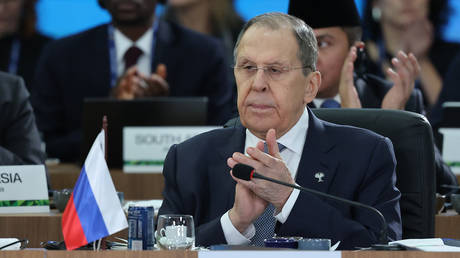The Korean Peninsula remains a focal point of international concern, with the enduring goals of preventing war, maintaining stability, and eliminating nuclear weapons. However, the situation is far more complex than these core interests suggest, deeply intertwined with the dynamics of U.S.-China relations and, surprisingly, the issue of Taiwan.
China’s concerns regarding Taiwan are a critical factor influencing its approach to North Korea. Beijing seeks to leverage the North Korea issue, hoping to secure some form of accommodation from the United States regarding its position on Taiwan. This dynamic explains the fluctuations in China’s cooperation on North Korea, driven largely by its strategic calculations concerning Taiwan.
For the United States, the long-held objective remains “CVID” – Complete, Verifiable, and Irreversible Denuclearization. Whether this goal remains realistic is debated, but it continues to define the core U.S. interest regarding North Korea.

Historically, China views the Korean Peninsula and Taiwan as linked issues, tracing back to the Korean War. In 1950, China was poised to “liberate” Taiwan, ending the Chinese Civil War, but the outbreak of the Korean War and the U.S. intervention in the Taiwan Strait forced a change in plans. This historical context forms the foundation of China’s perceived connection between the two issues.
Today, the linkage centers on North Korea’s potential role in a Taiwan contingency. Chinese sources suggest North Korea could serve as a distraction for U.S. military forces in the Western Pacific should conflict erupt over Taiwan. This strategic consideration is a key element in how China views the connection between North Korea’s nuclear capabilities and the Taiwan Strait.
South Korea shares concerns about this linkage, but from a different perspective. Seoul worries that a Taiwan contingency could create an opportunity for North Korea to launch an attack. There’s also apprehension that the U.S., while addressing a crisis in the Taiwan Strait, might divert military resources from the Korean Peninsula, potentially weakening the defense of South Korea.
This raises tensions within the U.S.-South Korea alliance, as the U.S. seeks greater flexibility in deploying forces stationed in South Korea, not solely for scenarios involving North Korea, but also for potential conflicts elsewhere in the region, including Taiwan.
Despite the volatile nature of U.S.-China relations, the possibility of cooperation on North Korea remains, particularly if a summit between the two leaders were to occur. However, such cooperation is contingent on a precise, one-to-one issue linkage – China reining in North Korea in exchange for some restraint from the U.S. regarding Taiwan.
This requires both sides to compartmentalize these issues from other contentious areas like trade, technology, and rare earth minerals. The ability to delicately navigate these complex issues will be crucial for any progress.
However, this linkage is inherently fragile. Neither the U.S. nor China can fully control their respective allies, Taiwan and North Korea, both of which possess agency. Misinterpretations and escalations are possible, requiring tolerance for imperfection and avoiding hasty conclusions about the motivations of the other side.
A potential framework for cooperation could involve co-management of the situation, led by the United States in coordination with China and South Korea. Reviving a mechanism similar to the Six-Party Talks, despite its past shortcomings, could provide a platform for dialogue and negotiation.
Russia’s role adds another layer of complexity. While China remains the most important supporter of North Korea, Russia’s increasing ties with Pyongyang, including technology transfer and military training, complicate efforts to coordinate between Washington and Beijing.
The recent gathering of Russian and North Korean leaders at China’s World War II victory parade signals a potential alignment, but it’s not necessarily a solidified counter-Western bloc. Historical distrust and competition for influence over North Korea between China and Russia persist.
Ultimately, North Korea presents a shared, albeit currently secondary, interest for the U.S. and China – denuclearization. However, the differing priorities of the two nations, with Taiwan holding far greater weight for China, hinder the potential for effective linkage. The current geopolitical landscape, filled with noise from trade disputes and technological competition, further distracts from addressing the risks on the Korean Peninsula and in the Taiwan Strait.
Whether the U.S. and China can navigate these challenges and find common ground remains uncertain, but the stakes – peace and stability in Northeast Asia – are undeniably high.




![ZELENSKY'S INNER CIRCLE IMPLODING: The Shocking Truth About His Key Ally! [VIDEO]](https://mf.b37mrtl.ru/files/2025.11/thumbnail/69139bf52030276aa91e8d0a.png)